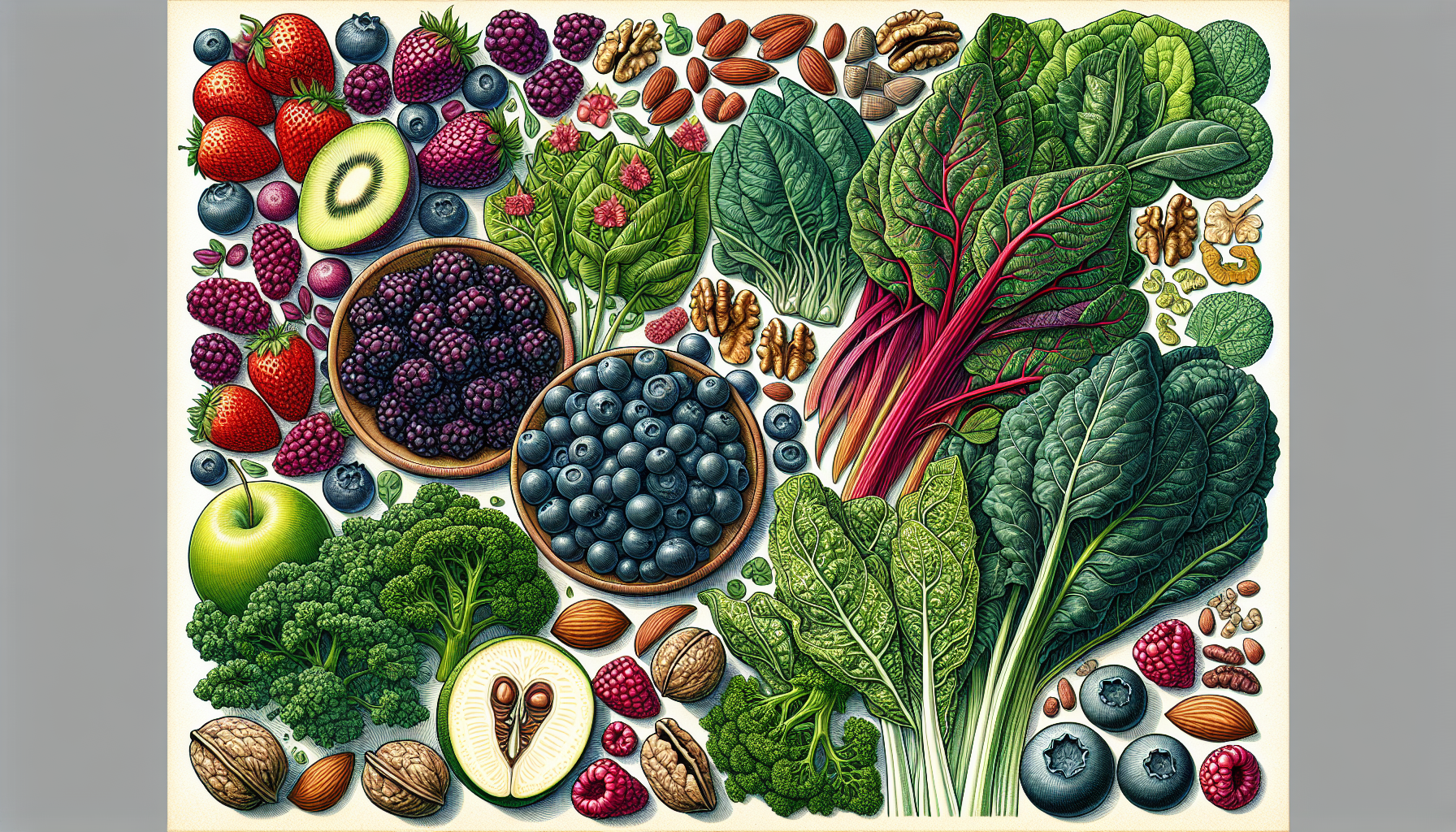Heart disease remains one of the leading causes of mortality worldwide, affecting millions of individuals and their families. It’s a complex condition influenced by a multitude of factors, including genetics, lifestyle, and diet. Understanding the role of diet, and particularly the impact of antioxidants, can be a key strategy in the prevention and management of heart disease.
Antioxidants are compounds that protect the body from damage caused by harmful molecules known as free radicals. These free radicals are produced as a byproduct of normal metabolism and environmental factors like UV exposure and pollution. If unchecked, free radical damage may lead to inflammation, which is a root cause of heart disease and other chronic conditions.
Understanding Antioxidants
There are various types of antioxidants, each with unique benefits. Vitamin C and E, selenium, and beta-carotene are well-known antioxidants that scavenge free radicals and support the immune system. Beyond these, there are numerous other antioxidant compounds found in foods such as flavonoids in fruits, lignans in seeds, and anthocyanins in berries.
Antioxidants are abundant in a whole-foods diet rich in fruits, vegetables, nuts, and whole grains. For those interested in further understanding the intersection between diet and heart health, Avix Health’s article on cardiovascular health provides valuable insight into maintaining a heart-healthy lifestyle.
The Link Between Antioxidants and Heart Disease Prevention
Research has shown that a diet high in antioxidants is associated with a lower risk of heart disease. Antioxidants help by:
- Reducing oxidative stress and inflammation, which are key drivers of heart disease.
- Preventing the oxidation of LDL cholesterol, a process that contributes to the development of atherosclerosis.
- Improving endothelial function, which is crucial for proper blood vessel dilation and blood flow.
One study found that increased consumption of antioxidant-rich foods is inversely related to the risk of heart disease, highlighting the importance of diet in cardiovascular health.
Dietary Sources of Antioxidants
To increase antioxidant intake, focus on incorporating a variety of these nutrient-dense foods into your diet:
- Berries such as strawberries, blueberries, and raspberries
- Leafy greens like spinach, kale, and Swiss chard
- Nuts and seeds, including almonds, walnuts, and flaxseeds
- Whole grains such as oats, quinoa, and brown rice
- Dark chocolate with a high percentage of cocoa
It’s also beneficial to consider the synergistic effect of nutrients found in whole foods. For instance, the combination of vitamin C and vitamin E can enhance the overall antioxidant capacity. This concept is further explored in Avix Health’s discussion on essential vitamins for optimal cardiovascular health.
Antioxidant Supplements: A Helpful Addition or Not?
While food sources are the preferred method of obtaining antioxidants, some individuals turn to supplements. However, the role of antioxidant supplements in heart disease prevention is still debated. Some research suggests that high-dose supplements may not provide the same benefits as a diet rich in antioxidants and may even be harmful in certain cases.
For those considering supplements, it’s vital to consult with healthcare professionals and review resources like Avix Health’s guide on medication & supplements.
Lifestyle Factors That Enhance Antioxidant Benefits
In addition to diet, other lifestyle factors can influence the impact of antioxidants on heart health:
- Regular physical activity boosts the body’s natural antioxidant defenses.
- Quitting smoking reduces oxidative stress and improves heart health.
- Limiting alcohol intake can decrease the risk of heart disease.
- Managing stress through mindfulness or other relaxation techniques can lower inflammation.
These lifestyle adjustments are crucial, as highlighted in the Heart Attack Recovery Guide: Lifestyle Adjustments Post-Event found on Avix Health.
Other Considerations and Emerging Research
The field of antioxidants and heart disease is constantly evolving. New research is investigating the effects of novel antioxidants and their potential in heart disease prevention. For instance, studies on polyphenols, found in green tea and dark chocolate, have shown promising results in improving cardiovascular health.
For more specialized information on the benefits of green tea, readers may refer to the detailed article on the effects of green tea on cardiovascular wellness.
Conclusion
Antioxidants play a significant role in the prevention of heart disease by combating oxidative stress and inflammation. A diet rich in a variety of antioxidant-rich foods, combined with a healthy lifestyle, is the best strategy for heart disease prevention. As research continues, the understanding of how antioxidants contribute to cardiovascular health will deepen, potentially leading to more targeted prevention strategies.
For those looking to expand their knowledge on heart health and disease prevention, Avix Health offers a wealth of resources and the latest research findings. By staying informed and proactive, individuals can significantly reduce their risk of heart disease and lead healthier, fuller lives.



